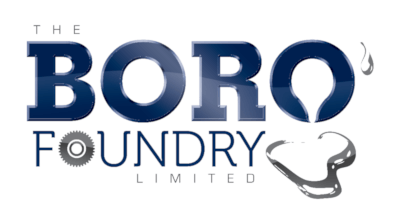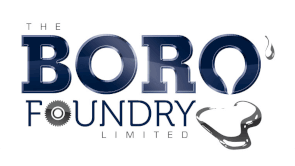Specialist Cast Steel Grades & Alloy Specifications
This page provides an overview of specialist cast steel grades and alloy compositions used in demanding or niche service environments. It includes corrosion-resistant stainless steels, general engineering steels, and high-strength alloys tailored for offshore, chemical, and structural applications. Each section outlines typical specifications, heat treatment processes, and mechanical performance data where available, offering a concise reference for material selection beyond standard grade families.
Steels for Mildly Corrosive Environments: 13% Chromium and Chromium-Nickel-Molybdenum Grades
Ferritic corrosion-resistant cast steels with wide-ranging applications in mildly corrosive environments. These alloys are typically based on 13% chromium content, with some variants incorporating nickel and molybdenum for enhanced performance. The 0.15% C, 13% Cr, 1% Mo composition offers reduced strength and toughness, and may exhibit lower weldability compared to higher alloyed grades.
Typical Specifications:
BS 3100 410C21, 420C29, 425C11; ASTM A743 CA15, CA6NM; DIN/EN: GX4CrNi13-4
Properties & Heat Treatment:
Supplied either normalised and tempered, or oil-quenched and tempered, depending on required strength and hardness levels.
Weldability:
Good, with appropriate procedures and control.
|
C
|
Si
|
Mn
|
S
|
P
|
Cr
|
Ni
|
Mo
|
Other
|
Yield
MPa |
UTS
MPa |
Charpy impacts
J@0°C |
|
|---|---|---|---|---|---|---|---|---|---|---|---|---|
|
Typical
|
0.04
|
0.35
|
0.6
|
0.02
|
0.025
|
13
|
4.00
|
0.35
|
–
|
550
|
755
|
35J
|
Stainless Steels for Corrosive Environments
A wide range of stainless steel alloy compositions are available to meet specific service conditions and engineering demands. Duplex stainless steels provide an excellent balance of corrosion resistance and mechanical strength, while fully austenitic grades are typically required for more aggressive environments or severe service applications.
Typical Specifications:
Type 304, 316, and Duplex steels; ASTM A743 CF8 / CF8M; ASTM A890 series
Properties & Heat Treatment:
Usually supplied solution-treated and quenched. Exact treatment parameters depend on alloy composition.
Weldability:
Generally good, especially when the microstructure includes small amounts of ferrite to reduce hot cracking risk.
|
C
|
Si
|
Mn
|
S
|
P
|
Cr
|
Ni
|
Mo
|
Other
|
Yield
MPa |
UTS
MPa |
Charpy impacts
J@0°C |
|
|---|---|---|---|---|---|---|---|---|---|---|---|---|
| Typical |
0.06
|
0.75
|
0.7
|
0.04
|
0.040
|
18
|
8.00
|
0.35
|
–
|
205
|
485
|
– |
| Typical |
19
|
9.00
|
2.50
|
|||||||||
| Typical |
25
|
5.00
|
2.00
|
Cu, N
|
Steels for General Engineering: Plain Carbon & Carbon-Manganese
Plain carbon and carbon-manganese steels are widely used in structural and general engineering applications. Higher carbon content increases strength but reduces toughness, while lower-carbon grades that are quenched and tempered provide a more balanced combination of strength and impact resistance. Mechanical performance, particularly at low temperatures, can be enhanced through alloying additions. Low-carbon nickel-molybdenum (NiMo) grades are commonly used in offshore applications due to their good weldability and reliable Charpy impact performance down to –40°C.
Typical Specifications:
BS 3100 A1–A6; ASTM A27, A216 WCB/WCC, A148 (70-40, 80-50); ASTM A352 LCA, LCB, LCC; DIN/EN: GS52, GS20Mn5, GS24Mn6V
Properties & Heat Treatment:
Supplied normalised, or quenched and tempered depending on application requirements
Weldability:
Good when carbon content is below 0.25%. Higher-carbon variants are weldable with controlled preheat and post-weld heat treatment (PWHT)
|
C
|
Si
|
Mn
|
S
|
P
|
Cr
|
Ni
|
Mo
|
Other
|
Yield
|
UTS
MPa |
UTS
MPa |
|
|---|---|---|---|---|---|---|---|---|---|---|---|---|
| Typical |
0.25
|
0.35
|
1.5
|
0.04
|
0.025
|
Residual
|
–
|
300
|
520
|
520
|
||
FREQUENTLY ASKED QUESTIONS
What types of special alloys do you supply?
We offer a selection of specialist cast steel grades for corrosion resistance, offshore use, and general engineering. These include ferritic, austenitic, and duplex stainless steels, as well as carbon and carbon-manganese steels, all in accordance with international standards such as BS 3100, ASTM, and DIN/EN.
Can you produce castings in custom compositions or hybrid grades?
Yes. We regularly work with customer-specified chemical and mechanical requirements, including less common alloy combinations and performance-driven modifications for specialised applications.
What industries use these special alloys?
Our special alloy castings are used in sectors such as offshore oil and gas, chemical processing, power generation, water treatment, and structural engineering — wherever enhanced corrosion resistance or specific mechanical properties are required.
Are these materials supplied to recognised standards?
Absolutely. We supply castings to international specifications including BS 3100, ASTM A743/A890, and EN equivalents, with full material traceability and test certification.
What casting sizes are available for these alloys?
We can produce specialist alloy castings up to 1.7 tonnes, depending on the material, geometry, and technical requirements.

